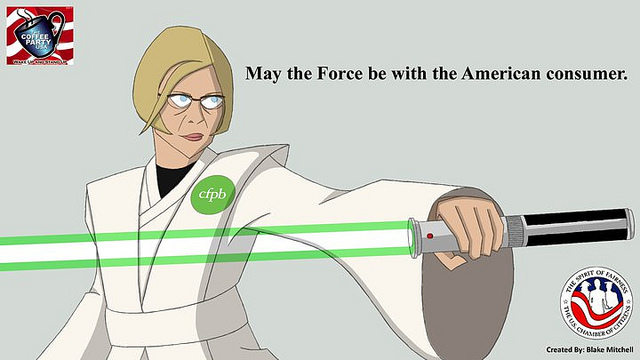
So far during the Summer of Sci-Fi, I’ve only taken the time to comment on films, not television series. Why? you may ask. Well, I’ll tell you why:
TV Sci-Fi generally sucks.
That’s not to say that I don’t like it–I do, I’m a sucker for all things sci-fi, but that doesn’t make it worth writing about. Looking back, there are a number of science fiction series that I’ve watched pilot to finale and which have been duly stamped into my unconscious on many levels, but about which I must ask: what’s to say about them now?
X-files? Well, I am tempted to write an extensive essay about how that show’s precipitous decline in quality because greedy executives tried to keep it alive long after they should have has made me skittish about any TV show and bizarrely grateful when a show ends without having had time to grow stale (I’m looking at you, Firefly), but that’s for another day.
Star Trek? The original series is iconic and historically significant, but it also had various trips to planets based solely on which left-over sets could be reused on the Paramount lot. Hence we had the Nazi planet, the Western planet, and whatever planet had that same Yeti-looking thing over and over again. And the others? Well, Next Generation had some moments, but nothing resembling the kind of consistency you could generalize about. The rest are, well, pretty forgettable (not that I’ve forgotten, per se, but I should have).
So there just aren’t many sci-fi TV shows worth talking about, but Battlestar Galactica is an exception.
Ratings:
On one level, it physically pains me to praise this series because it is yet another product of the modern entertainment industry’s obsession with resurrecting long-dead (or sometimes recently sleepy) franchises through reboots. Battlestar is a perfect example of the inanity of this thinking. This show resembles the original 70s series in little more than name and general fighter-jet design aesthetic. Whereas the old series was overwrought space opera, BSG (as fans know it) was gritty and hard-nosed realism. Yes, realism. It’s a military and political drama that just happens to take place in space. This direction was bold and a real departure for TV sci-fi. Every space show that had come before it tried in one way or another to be fun–to be light-hearted entertainment. Whatever themes it might have been tackling in any given episode (and there weren’t always any to speak of) Star Trek was an adventure, first and foremost. BSG was different. In the wake of James Gandolfini’s death, a lot of people are crediting The Sopranos for paving the way for the current generation of gutsy cable dramas like Mad Men and Breaking Bad. That’s true enough, but it’s also true that without BSG, there probably wouldn’t have been space on that landscape for the likes of Game of Thrones and Walking Dead.
A Strange New World…8
Most other sci-fi TV also falls into mostly adventure-of-the-week story-telling. BSG, though, dealt with running plot lines much like the crop of TV dramas referenced above. What’s really noteworthy, though, are the allegorical dimensions and political themes running underneath the surface throughout the show’s four seasons. In this rendering, the twelve colonies of man are a pluralistic, democratic society that is ambushed by a monotheistic, ideological race bent on their destruction as recompense for past wrongs. On one level, this might seem like yet another piece of pop culture regurgitating 9/11 motifs the way that Japanese movies used to fixate on the destruction of cities post-Hiroshima. But BSG takes four years to craft its big message about the cycle of violence and the ultimate shared humanity of entrenched enemies (even when, in one sense, one side isn’t exactly human) and challenges every point of view along the way. There is no pat morality tale here, but there is one idea that resonates out of all the confusion of shifting alliances, twisted motivations, suspect moralities, and genocidal agendas: it is not enough to survive, one must be worthy of survival.
Theme…8
Continuity (with two points off for a meandering season 4)…8
BSG also pulled together an exceptional cast to create its dizzyingly broad cast of characters. The troop was led by Oscar nominees Mary McDonnel and Edward James Olmos as the leaders of the decimated human race. While some characters, like Apollo, languish in wishy-washy uncertain realization, other characters spring forward into sci-fi icons. When she first appeared on Big Bang Theory in her BSG uniform, my kids didn’t get who Katee Sackoff was, but now that they’ve been properly initiated (with hands over eyes for the racy bits) they recognize a geek goddess when they see one–or when Howard Wallowitze imagines one, that is. We also grin to ourselves when we see other alum of BSG, like Tahmoh Penikett (most recently in Man of Steel) whose marriage to Grace Park’s Cylon turncoat became an emotional core in the show. Many of these characters swing wildly through extreme situations throughout their years on the run from the dreaded Cylons. The changes they’re put through put me in mind of character critiques of Shakespeare. Shakespeare’s characters are wildly inconsistent, after all, so the question is: was the Bard lousy at keeping them consistent, or did he know human nature well enough to know that we all jig and amble and lisp? I’ve come down, late in life, on the latter side, and I give BSG the same benefit of the doubt.
Characters (with another 2 point deduction for Apollo)…8
Finally, there are the baddies…who aren’t the baddies at all. Some of the Cylons are cheap CGI foot soldiers (still an improvement over guys in kilts with metal helmets like in the 70s show), but even those effects are too special to roll out every other scene. So in the new mythology of BSG, the Cylons have “evolved” into cyborgs who mimic human form. The enemy has become us, as much to best us as to infiltrate us. Though there are plenty of episodes that utilize sci-fi tropes differentiating the Cylons as “machines” and artificial beings capable of superhuman feats, at the core, they are human. They are fragile, almost psychologically broken beings, and their imperfections are as important to the themes of the show as the conflicts between the squabbling human characters. Initially, they nuke humanity out of resentment and rage, but by the end of the show, they have embraced their own humanity and (the surviving) Cylons merge with the human race, offering a tentative hope for an end to endless bloodshed and misunderstanding. From the beginning we were promised that “they have a plan,” and, though my faith wavered in the creator’s commitment to a long-term arc from episode one from time to time, there was still more than enough menace in the Cylon threat hounding the human characters to see the show through to the climactic battle in the final episodes.
Antagonists…6
Total: 38
Okay, there are exactly two more of these kinds of retrospective geek meditations that I simply must do. Stay tuned.






